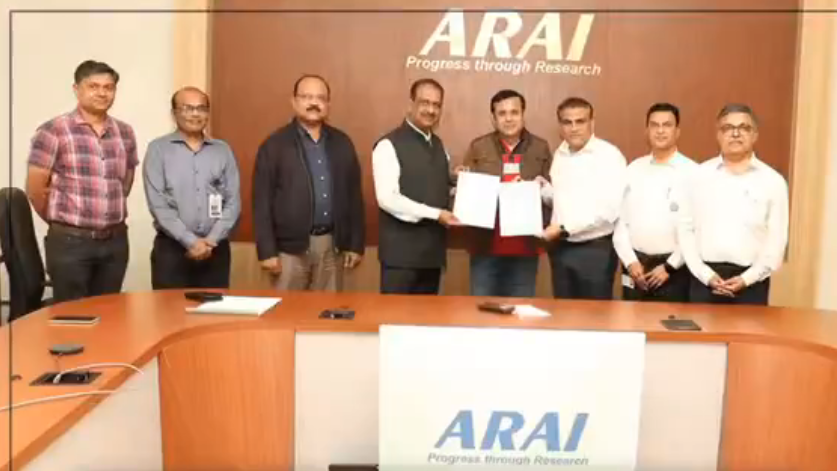Tata Motors has secured the first Production-Linked Incentive (PLI-AUTO) certificate in the M3 Category from the Automotive Research Association of India (ARAI). This recognition is attributed to Tata Motors’ 12m long Fully Built Bus, the TATA STARBUS 4/12 EV, encompassing both AC and Non-AC variants. The M3 Category pertains to motor vehicles designed for passenger carriage with a maximum Gross Vehicle Weight exceeding 5 tonnes.
ARAI commends Tata Motors for conformity
A few months back, Tata Motors received the inaugural PLI certificate in the N1 category for four-wheeled goods vehicles. The Automotive Research Association of India acknowledged Tata Motors for adhering to the standard operating procedures outlined by the Automotive PLI scheme managed by MHI.
PLI scheme’s focus on localisation and exports
The overarching objective of the PLI scheme is to bolster local production and stimulate exports within the automotive industry. Tata Motors’ recent achievement follows the acquisition of a domestic value certificate, a significant milestone towards eligibility for the substantial INR 25,938 crore PLI scheme.
Government extends PLI scheme
The Central Government, on August 30, announced a one-year extension of the PLI scheme for the automotive sector. Originally slated for a five-year duration from 2022–23 to 2026–27, the scheme will now remain in force until 2027–28. The scheme’s incentives are currently applicable to specific sales of Advanced Automotive Technology (AAT) products manufactured in India, starting from April 1, 2022. This includes vehicles and related components.
Impact and significance
Tata Motors’ receipt of the PLI-AUTO certificate underscores its commitment to the local automotive manufacturing landscape. The certification for the TATA STARBUS 4/12 EV in the M3 Category aligns with the PLI scheme’s emphasis on encouraging the production of vehicles designed for passenger transport with a significant gross weight.
Towards a localised and export-focused approach
The PLI scheme’s core philosophy revolves around promoting the localisation of production processes and enhancing exports from the Indian automotive industry. Tata Motors’ dual certifications in the N1 and M3 categories demonstrate its concerted efforts to meet the scheme’s stringent criteria, further solidifying its position within the PLI framework.
Government’s strategic move
The extension of the PLI scheme by the Central Government reflects a strategic move to sustain the momentum of incentivising advanced automotive technologies. With a renewed focus on products manufactured in India, the scheme aims to create a conducive environment for growth and innovation in the automotive sector.
Looking ahead: implications for Tata Motors
Tata Motors’ eligibility for the PLI scheme positions the company for increased competitiveness and growth opportunities. As the scheme extends into the next fiscal year, Tata Motors can leverage these incentives to drive local production, foster technological advancements, and contribute to the expansion of the Indian automotive market.
Tata Motors’ recent certification by ARAI in the M3 Category represents a pivotal moment in its journey towards maximising the benefits of the PLI scheme. As the automotive industry navigates through dynamic shifts and embraces advanced technologies, Tata Motors stands at the forefront of aligning with national initiatives that propel the sector towards sustainable and robust growth.



